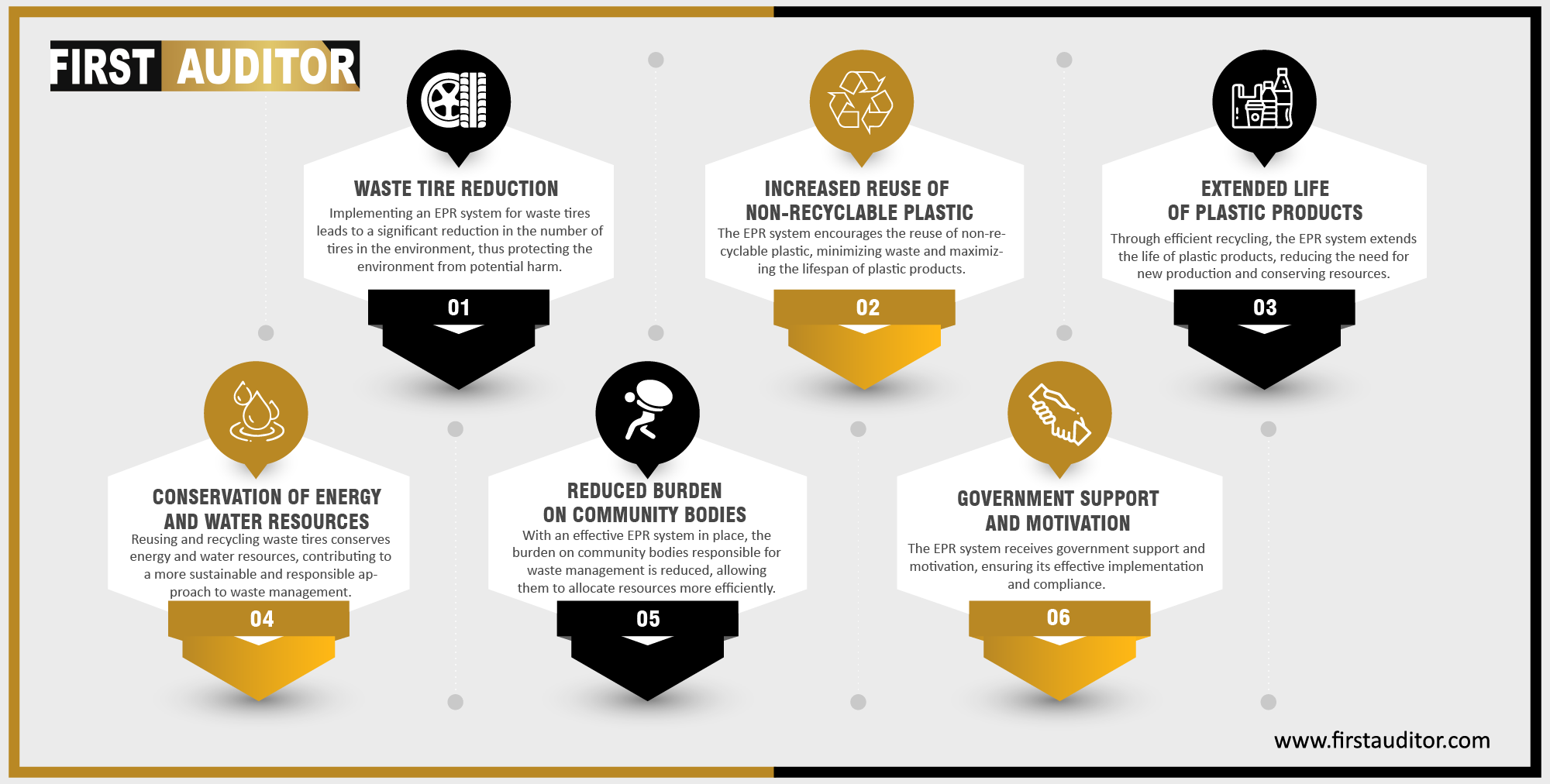Under the Extended Producer Responsibility (EPR) law, tire producers are required to make sure that used tires are disposed of in an environmentally responsible manner. The Ministry of Environment, Forests, and Climate Change announced the Hazardous and Other Waste (M and TM) Amendment Rules, 2022, which includes the regulation in Schedule IX.
India mandates producers, importers, brand owners, and manufacturers involved in tire production and sales to adhere to Extended Producer Responsibility (EPR) standards for waste tires, including retreaters who replace worn-out tread with fresh ones.
Stakeholders, importers, or producers of tires must submit Form 1 in accordance with the Hazardous and Waste Management Rules of 2016 to obtain an Extended Producer Responsibility (EPR) for waste tire management.
The process for EPR registration for waste tire management begins with signing up on the EPR portal to receive login credentials.
After receiving the login credentials provided by CPCB, stakeholders must sign in to the portal and complete the registration form.
It is important to submit the registration form within 30 days of signing up to ensure timely processing.
CPCB will review all the documents and submissions made by the applicant during the registration process.
If there are any shortcomings or missing information, the applicant will be notified through the portal.
To proceed with the EPR registration, the applicant must prepare all the required documents for the EPR Pollution Certificate.
It is crucial to carefully organize the documents in the proper order to facilitate the review process.
Once all the necessary steps have been completed, the applicant must wait for approval from CPCB before proceeding with waste tire management activities.

EPR (Extended Producer Responsibility) for Tyre-Waste registration is a regulatory requirement that mandates tyre manufacturers, importers, and dealers to take responsibility for the proper collection, recycling, and disposal of tyre waste. This system ensures that tyres are not discarded in ways that harm the environment.
Tyre manufacturers, importers, and dealers involved in the production, sale, or import of tyres must register for EPR to manage tyre waste in accordance with environmental guidelines and to ensure proper recycling and disposal.
Documents required include business registration certificates, details of tyre production or import, tyre waste management plans, agreements with authorized recyclers, and evidence of tyre waste collection and recycling mechanisms.
To apply for EPR Tyre-Waste registration, you need to visit the Central Pollution Control Board (CPCB) portal, fill out the registration forms, upload the necessary documents, and submit the application with the required fees. Upon approval, an EPR certificate will be issued.
Failure to comply with EPR regulations for tyre waste can lead to penalties, including fines, legal action, and suspension of operations by the CPCB or relevant State Pollution Control Boards. Regular audits and inspections may be conducted to ensure compliance.
The EPR registration for tyre waste is generally valid for one to three years, depending on the approval by regulatory bodies. Regular renewals are required to maintain compliance with the regulations.
The registration process typically takes a few weeks to a few months, depending on the completeness of the application and the time taken by regulatory authorities to review the submission.
No, EPR registration is non-transferable. Each entity responsible for the production or import of tyres must individually apply for its EPR registration and ensure its compliance with the regulations.